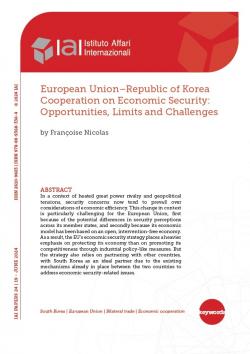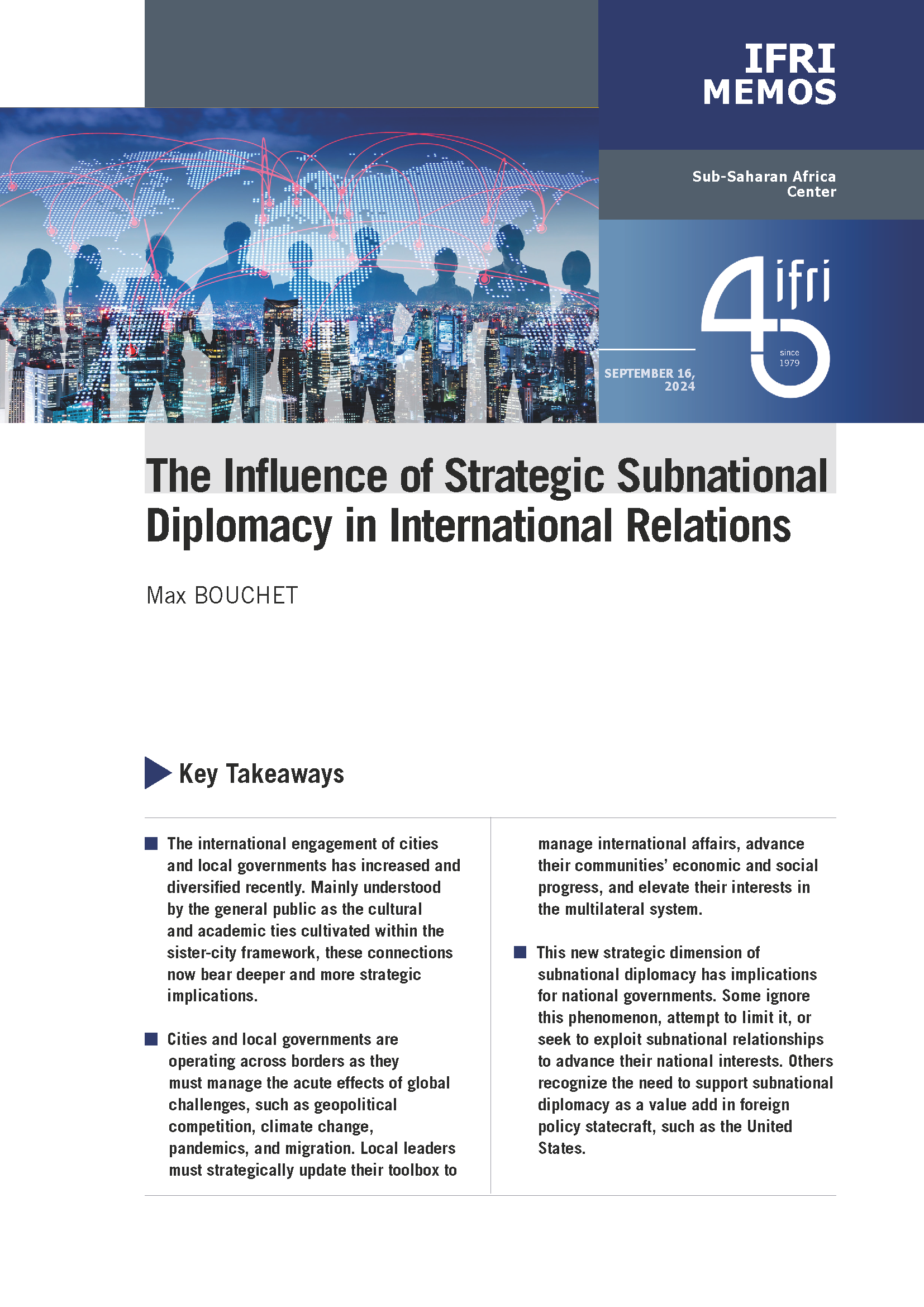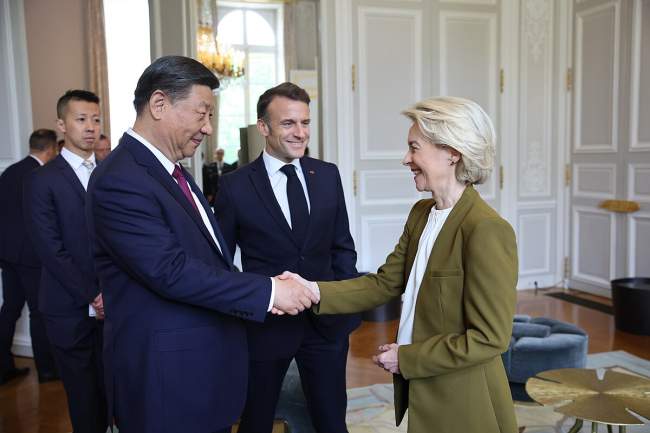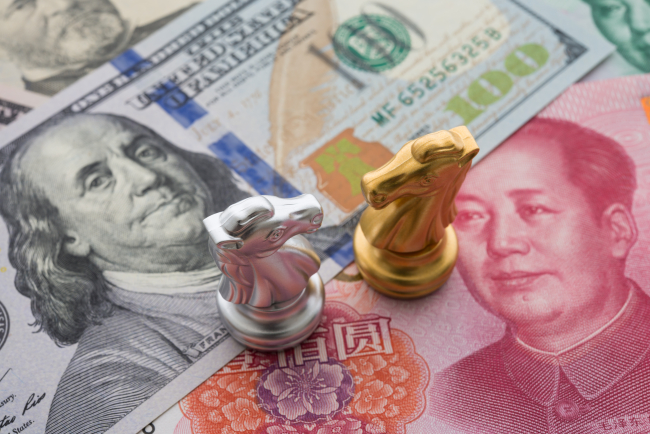No Longer the 'Reactive State': Japan's Pro-Active Free Trade Posture

In late 2010, the Kan government proclaimed a very ambitious trade agenda, leaving no doubt as to its commitment to free trade. The Basic Policy on Comprehensive Economic Partnerships aimed to promote "high-level economic partnerships with major trading powers" and to "open up the country", including collecting information on the Trans-Pacific Partnership (TPP) and consulting with the parties to it.
These developments signalled a new level of Japanese foreign economic policy activism and an important departure from Japan's typically "reactive state" posture.
The paper offers a multi-factorial explanation for the Kan government's adoption of a pro-active free trade agenda. It also provides an examination of the March triple disaster on the farm sector, given that agriculture remains a major impediment to free trade.

Also available in:
Regions and themes
ISBN / ISSN
Share
Download the full analysis
This page contains only a summary of our work. If you would like to have access to all the information from our research on the subject, you can download the full version in PDF format.
No Longer the 'Reactive State': Japan's Pro-Active Free Trade Posture
Related centers and programs
Discover our other research centers and programsFind out more
Discover all our analyses
Strengthening US-EU Cooperation on Technical Standards in an Era of Strategic Competition
Transatlantic ties have had a rough go in recent months. After an unprecedented degree of alignment on Russia in the first half of 2022, including the quick and efficient rollout of a series of groundbreaking sanctions packages, the United States and Europe stepped back into dispute territory with the fallout from measures taken by Washington, notably some key provisions of the pathbreaking Inflation Reduction Act (IRA) passed last summer.

European Union–Republic of Korea Cooperation on Economic Security: Opportunities, Limits and Challenges
This piece is a revised version of a paper presented at the conference on “New Convergences in EU-ROK Economic Security Relations”, organised in Rome on 30 January 2024 by the Istituto Affari Internazionali (IAI).
France Adapts to an Era of Strategic Competition With China
Power and Financial Interdependence
The link between financial self-reliance and geopolitical power has long been debated. The unbalanced Sino-American trade relationship has created asymmetric financial ties which generate potential sources of leverage for both parties and will not quickly disappear. Absent a clarifying major crisis, it will be difficult to definitively determine which party has greater leverage.









